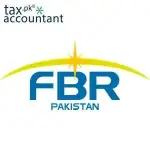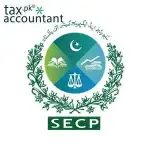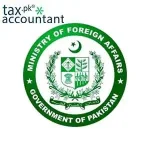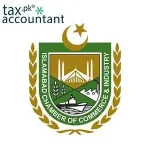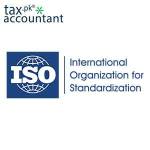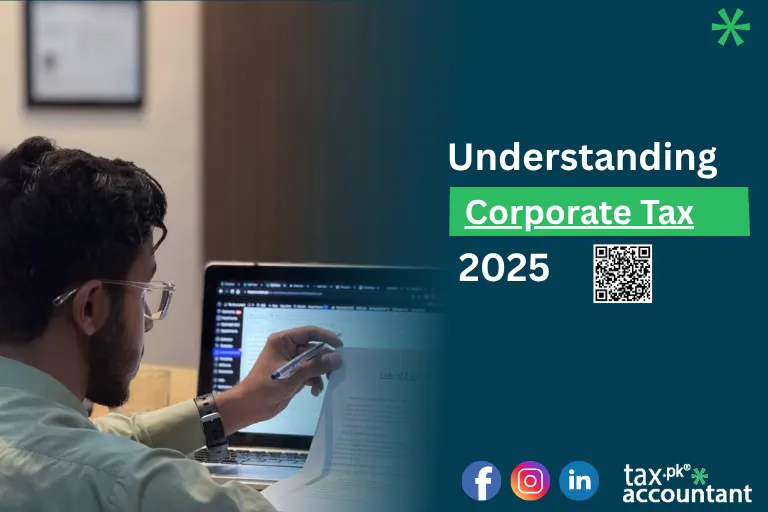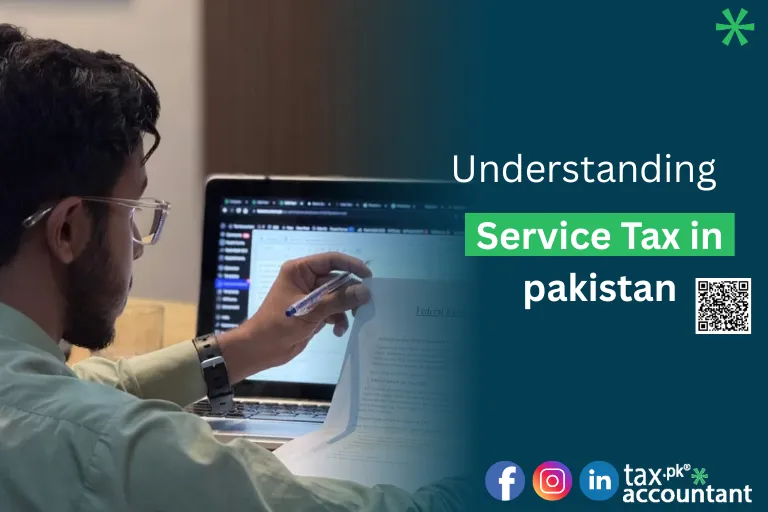
Tax Exemption in Pakistan 2025
According to the law in Pakistan, tax exemption is one of the best ways for people and companies to legally lower their tax burden. As Pakistan’s tax system changes and the Federal Board of Revenue puts in place new rules, it’s important to know what tax breaks are available so you can plan your finances well. Recent changes to tax rules and a greater focus on proof mean that taxpayers who take advantage of legal tax exemptions can save a lot of money and help the economy grow at the same time.
[Image suggestion: A Pakistani taxpayer looking over tax exemption papers on a desk that has a calculator and financial records nearby.]
How to Understand Pakistan’s Tax Exemption
In Pakistan, a tax exemption is a legal measure that lets certain income, transactions, or entities not be taxed under certain conditions set out in Pakistani tax laws. There are many reasons for these exemptions, such as helping the economy grow, backing certain industries, attracting investment, and helping poor people.
Pakistan’s tax policy is based on the idea of tax exemptions, which are meant to balance the need to collect taxes with the goal of economic growth. Through its detailed tax policies, which can be found at https://www.fbr.gov.pk, the Federal Board of Revenue has set up an organised system of exemptions that helps both individuals and businesses while keeping the government’s finances in good shape.
[Chart suggestion: a pie chart that shows how tax exemptions are split up by type: 35% are for individuals, 30% are for businesses, 20% are for investments, and 15% are for sector-specific exemptions.]
What tax exemptions are for and why they’re used
In Pakistan, tax allowances do more than just lower taxes; they also help the economy and society in important ways. These exemptions are planned to encourage certain behaviours, help certain industries, and reach larger goals for economic growth.
Promoting economic growth:
Tax breaks support investment in key areas like manufacturing, agriculture, and technology, which helps Pakistan’s economy become more diverse and creates jobs.
Support for social welfare:
The tax system supports social justice and helps those who need it most by giving exemptions to low-income groups, charitable organisations, and important services.
Investment Incentives:
Tax breaks for saving, investing, and planning for retirement encourage people to think about their finances in the long run and help the economy grow by creating capital.
Export Promotion:
Tax breaks for businesses that focus on exports are meant to make Pakistan more competitive on international markets and bring in more foreign currency.
Different Types of Tax Breaks
Pakistan’s tax exemption system is made up of different types, each of which is meant to meet a different policy goal and customer need. Knowing these groups helps people find exemptions that apply and make good plans for their tax strategies.
Permanent Exemptions cover certain types of income or businesses that don’t have to pay taxes at all under normal conditions. Some examples are cash from farming, donations to charities, and certain government agencies.
With conditional exemptions, filers must meet certain requirements in order to get tax relief. These could be things like minimum investment levels, standards for creating jobs, or following certain rules.
Time-Limited Exemptions lower taxes for certain amounts of time. They are often used to support new businesses, speed up the economic recovery, or encourage certain investments during certain times.
Partial Exemptions lower your tax bill instead of getting rid of it completely. They do this by giving you graduated relief based on things like your income, investments, or business activities.
The laws that govern tax exemptions
There is a large body of laws, rules, and statements in Pakistan that make tax exemptions legal. These documents make it clear who is eligible, how to apply, and what the rules are for following them.
Main laws and rules
The Income Tax Ordinance 2001 is the main law in Pakistan that says who can get tax breaks. This law explains different types of income that are not taxed, sets requirements for being eligible for exemption, and explains how to claim and keep exemption status.
Chapter 3 of the Income Tax Ordinance talks about exempt income in detail, outlining the different types of exemptions that people and businesses can get. This law is updated on a regular basis to make sure that the exemption rules keep up with changes in the economy and policy goals.
The Sales Tax Act of 1990 gives exemptions for goods and services tax, including those for necessary goods, goods meant for export, and certain areas seen as important for social welfare or economic growth.
Some goods and services are exempt from federal excise duty under the Federal Excise Act 2005. This helps certain businesses and consumer welfare goals.
Regarding the tax laws in Pakistan, there are legal papers and law books with the FBR logo.
Framework for regulations
Statutory Regulatory Orders (SROs) https://fbr.gov.pk/ShowSROs?Department=Customs from the Federal Board of Revenue explain in detail how tax allowances should be used. For different types of exemptions, these rules spell out who is eligible, how to apply, and what needs to be done to comply.
FBR https://fbr.gov.pk/ Circulars and Notifications explain and clarify exemption rules. This helps customers understand complicated rules and makes sure that they are applied the same way by all tax offices.
Provincial Tax Laws add to federal exemptions by giving more exemptions for provincial taxes like land tax, motor car tax, and professional tax.
Structure of Administration
The FBR’s Tax Policy Wing creates exemption policies and works with other government offices to make sure they are in line with the country’s overall economic goals.
Legal Wing helps people understand exemption rules and settles disagreements about exemption claims and decisions about who is eligible.
Through field offices, the Operations Wing puts exemption policies into action and makes sure that exemption rules are applied the same way all over the country.
Different Types of Tax Breaks
The tax system in Pakistan has a lot of different allowances for different types of taxpayers and economic goals. Knowing about these different kinds helps people find opportunities that apply to them and make good plans for their tax strategies.
Exemptions Based on Income
Minimum Taxable Income Thresholds make sure that people who earn less than certain amounts don’t have to pay any income tax. For the tax year 2024–2025, people who make up to PKR 600,000 a year do not have to pay any income tax.
Agricultural Income Exemptions keep income from farming from being taxed by the federal government. This is done to recognise how important farming is to Pakistan’s economy and to help rural development.
Salary Exemptions are parts of job income that are not taxed, like medical allowances, transportation allowances, and housing benefits up to certain limits.
[Suggested table: Income Tax Exemption Levels for Many Types of People]
Threshold for Taxpayer Category Exemptions Extra Benefits
Standard charges for an individual (general) of PKR 600,000.
Seniors (60+): PKR 1,200,000 Medical discounts
Special benefits for disabled people worth PKR 1,200,000
PKR 600,000 for women to use for maternity leave
Various benefits for salaried workers, including travel and medical costs
Investment and Savings Tax Breaks
Employers and workers can both make contributions to the Provident Fund without having to pay income tax on them. This makes it easier to save for retirement and plan for the future.
Life insurance premiums are tax-free up to certain limits, which encourages families to get insurance and protects their finances.
Tax breaks are often given to people who invest in government securities like National Savings Certificates, Defence Savings Certificates, and Prize Bonds. This is done to encourage people to save money and help the government pay its bills.
Tax breaks are given to investments in pension funds to help people plan for retirement and make social security systems less stressed.
Tax breaks for charities and good causes
Charitable organisations that are listed with the right authorities don’t have to pay any income tax on the good things they do for others, which helps with community development and social welfare.
Non-profit educational institutions don’t have to pay taxes, which helps with education and developing human resources.
Healthcare facilities that provide public health services may be able to get tax breaks, which helps make healthcare more accessible and improve its standard.
Tax breaks are given to religious groups that do religious and charitable work. These breaks help with spiritual and community welfare activities.
Individuals can get tax breaks on their income
Individual taxpayers in Pakistan can get a lot of tax breaks that are meant to help people with different amounts of money and encourage them to behave in certain ways with their money.
Exemptions for Pay and Employment
Salaried workers don’t have to pay taxes on their transport allowance up to PKR 81,000 a year or their real transportation costs, whichever is less.
Medical Allowance of up to PKR 120,000 a year is not taxed, which helps workers and their families pay for medical costs.
Housing Allowance is partially exempted based on salary levels and real housing costs. This helps employees manage their housing costs.
Utilities Allowance for costs like water, gas and electricity may not be taxed up to certain limits. This lowers the tax load on basic living costs.
[Chart idea: A bar chart that shows the highest amount of tax that is not taxed for each salary limit]
Individual Exemptions Based on Investments
Life insurance premium payments are tax-free up to PKR 500,000 or 20% of taxable income, whichever is less. This makes it more appealing to get insurance and plan your finances.
Employee contributions to the Provident Fund are not taxed at all, which encourages people to save for retirement and ensures their long-term financial stability.
Tax breaks are given to people who put money into voluntary pension schemes. This is done to encourage people to plan their own retirement and lessen their reliance on government pension systems.
People who invest in Approved Pension Funds can get tax breaks, which helps the private pension business grow and gives people more security in their retirement.
Exemptions for certain categories
People over 60 are free from more taxes and get extra money to help pay for medical costs. This is because they can’t work as much and need more medical care.
People with disabilities get higher exemption limits and special tax breaks for costs related to their disability, which supports equal chance and inclusion.
Women taxpayers may be able to get certain exemptions and lower rates in some situations. This promotes gender equality and women’s economic involvement.
Pakistanis who work outside of Pakistan may be able to get tax breaks on their foreign-sourced income if certain conditions are met. This encourages them to send money back to Pakistan and keeps their ties with the country strong.
Individuals can get professional and business exemptions
Small Traders whose yearly sales are less than certain limits may not have to pay income tax. This helps small businesses grow and encourages people to start their own businesses.
Professional Service Providers in certain areas may be able to get lower rates or even no fees in their first few years of work, which helps them grow as professionals.
Freelancers and consultants may be able to get tax breaks on the services they sell, which will help Pakistan’s service exports and foreign exchange earnings.
Business and Corporation Tax Breaks
Pakistani companies can get a number of tax breaks that are meant to encourage investment, certain activities, and economic growth in a range of areas.
Exemptions for the Manufacturing Sector
New Industrial Undertakings may be able to get tax breaks for 5 to 10 years, based on where they are located and how much they invest. This helps industries grow and creates jobs.
Balochistan and the Tribal Areas get special breaks on taxes for investing in businesses. This helps less developed areas grow and evens out differences between areas.
Export-oriented industries get a lot of tax breaks, like lower tax rates, duty-free imports of machines, and tax breaks on the money they make from exports.
Small and Medium Enterprises (SMEs) benefit from lower tax rates and easier rules to follow, which encourages people to start their own businesses and helps them grow.
[Table suggestion: Tax Breaks for the Manufacturing Sector]
Type of Investment Tax Holiday Period Extra Benefits
Big factories that make things for 5 to 7 years Duty-free stuff
SMEs that make things: 3 to 5 years Simplified processes
Export Industries: 10 years of tax breaks on export profits
Balochistan Industries: 10 years of extra rewards
Exemptions for Technology and Innovation
Software Development Companies that sell software services don’t have to pay as much in taxes. This is done to help Pakistan’s IT industry and service exports.
To encourage new ideas, business growth, and technology creation, Technology Parks and Incubators get special tax breaks.
Research and Development Activities can get bigger tax breaks and deductions, which encourages new ideas and technology progress.
Startups and tech companies may get lower rates and tax breaks in their first few years, which will help Pakistan’s tech industry grow.
Exemptions for the Service Sector
Healthcare services given by hospitals and medical facilities may be exempt, which helps make healthcare more accessible and better.
Private educational schools that offer educational services get special tax breaks, which helps improve education and human resources.
Some types of financial services don’t have to follow certain rules. This is done to encourage financial equality and market growth.
Tourism and hospitality businesses in certain places may be able to get tax breaks to bring in more tourists and foreign currency.
Exemptions for Farming and Rural Areas
Agricultural income is still not taxed by the federal government, which helps with food security and rural growth.
Livestock and dairy farming are taxed more favourably, which encourages economic diversification and job creation in rural areas.
Agro-Processing Industries get tax breaks that are meant to make agricultural goods more valuable and help rural areas become more industrialised.
Cooperative Societies that work in agriculture get special breaks that encourage group growing and working together in rural areas.
Tax Breaks for Investments
Pakistan gives full tax breaks for many types of investments to urge people to save money, build up their capital, and help the economy grow.
Investing in the capital market
People who trade in the stock market don’t have to pay taxes on capital gains on securities they hold for more than a year. This encourages long-term investments and keeps the market stable.
Mutual funds are taxed more favourably than other investments because dividend income is not taxed and capital gains are taxed at lower rates. This encourages group investment and the growth of the financial market.
Tax breaks are available on government securities like Pakistan Investment Bonds, Treasury Bills, and National Savings Certificates. This is done to urge people to save money and help the government pay for things.
While still following Islamic finance principles, Sukuk and Islamic Bonds get tax breaks similar to regular bonds. This helps the growth of Islamic capital markets.
[Chart idea: A line graph that shows the tax benefits for keeping an investment for different lengths of time]
Exemptions for Real Estate Investments
Capital gains on property kept for more than 4 years are not taxed at all. This encourages long-term property investment and discourages speculation.
Real Estate Investment Trusts (REITs) get tax breaks and pass-through payments that are meant to encourage organised real estate investment and market growth.
Construction and development operations may be exempt in the first few years, which will help the construction industry and housing development grow.
Rental income from properties is partially tax-free and treated more favourably, which encourages people to invest in real estate and grows the rental market.
Investing for retirement and pensions
Contributions to Voluntary Pension Schemes are not taxed right now, so they can be used to save for retirement without being taxed. This encourages the growth of private pension plans.
Contributions and investment returns to Employee Provident Funds are tax-free, which helps employees plan for their future.
Gratuity and pension payments are not taxed up to certain boundaries. This protects retired workers and their families.
Individual Retirement Accounts (IRAs) may be exempt from taxes, which encourages people to plan for their retirement and save for the long run.
Exemptions for International Investment
Foreign Direct Investment (FDI) in priority sectors may be eligible for tax breaks and breaks from paying taxes. This brings in foreign capital and technology transfer.
Export proceeds from goods and services are taxed more favourably, which increases foreign exchange earnings and makes a country more competitive on the world stage.
Under double taxation deals, Pakistani residents may not have to pay taxes on income from overseas investments. This encourages international diversification.
Tax Breaks for Certain Industries
Pakistan’s tax system has special exemptions for industries that the government thinks are important for economic growth, job creation, or strategic goals.
Sector of information technology
Software Export Services don’t have to pay any income tax until 2025. This makes Pakistan a good place to get IT services and software creation done.
In addition to income tax breaks, customs duty exemptions, and sales tax relief, IT Parks and Special Technology Zones get other tax breaks as well.
Lower tax rates and easier compliance processes help freelancers and IT professionals who export their services, which is good for Pakistan’s digital economy.
Technology startups may be able to get tax breaks and lower rates in their first few years, which can encourage new ideas and business in the technology industry.
[Image suggestion: a modern IT office in Pakistan with people working on computers, showing the tech industry]
Exemptions for the Healthcare Sector
Private hospitals and clinics that provide healthcare services may be able to get tax breaks, which helps make healthcare more accessible and better.
Medical Equipment Manufacturing gets special tax breaks to encourage local output and lower the cost of health care.
The pharmaceutical industry gets tax breaks for a number of research and development activities. This helps to create new drugs and improve healthcare.
Medical Education Institutions get exemptions to help support medical education and meet the needs of the healthcare industry for human resources.
The education sector gains
Private educational institutions that don’t make money get to avoid paying any income taxes. This helps with education and developing human resources.
Tax breaks are given to vocational training centres to help people learn new skills and find jobs.
Research institutions that do scientific research can get bigger tax breaks and exemptions, which encourages new ideas and the creation of new information.
To support digital learning and education solutions, Educational Technology Companies may get better tax treatment.
Farming and processing food
Agricultural activities are still not taxed by the federal government, which helps with food security and rural growth.
Exemptions for the food processing industry are meant to increase the value of agricultural goods and encourage agro-industrialization.
Livestock and poultry farming get special tax breaks, which helps make protein and create jobs in rural areas.
Organic farming and sustainable farming may be able to get more exemptions, which would help the environment and current farming methods.
Special Tax Breaks for Provinces
In Pakistan, different provincial governments offer different tax breaks in their areas to help local businesses grow, fund certain activities, and help people.
Tax Breaks for Professionals
Small Professionals who make less than certain amounts are not taxed as professionals in most areas. This helps small businesses and professionals work from home.
In some provinces, women professionals may get lower rates or not have to pay taxes at all. This promotes gender equality and women’s economic involvement.
New graduates who start working as professionals often get breaks during their first few years, which helps them build their careers and become better professionals.
Seniors who work may be able to get lower rates or even be exempt from paying some taxes. This is to recognise their knowledge and service to society.
Less property tax
Most governments don’t charge property taxes on homes that are worth less than a certain amount. This helps homeowners with middle- and low-incomes.
Agricultural land that is used for farming usually doesn’t have to pay property taxes. This helps agriculture grow and people in rural areas make a living.
Most of the time, charitable and religious properties don’t have to pay property taxes. This helps the community and supports religious activities.
To encourage industrial growth and job creation, industrial properties in certain places may get temporary exemptions.
[Table idea: Comparison of Provincial Tax Exemptions]
Province Tax Break for Professionals Property Tax Relief Tax Break for Motor Vehicles
Up to PKR 300,000 in income; homes worth less than PKR 2M; motorcycles smaller than 70cc;
Sindh: Up to PKR 400,000 in income; homes worth less than PKR 1.5M; Rickshaws and cabs
KPK: Up to PKR 250,000 in income; Farmland; Public travel
Up to PKR 200,000 in income from properties in tribal areas and commercial cars in Balochistan
Tax Breaks for Motor Vehicles
Motorcycles and scooters with engines that are under a certain size are often free from motor vehicle taxes. This helps people with lower incomes get around easily.
Buses and waggons that are used for public transportation may not have to pay certain taxes. This is done to encourage public transportation and ease traffic.
Agricultural Vehicles, like tractors and farm equipment, don’t usually have to pay motor vehicle taxes. This helps mechanise farming and boost output.
Disabled Person Vehicles get special treatment to help people with disabilities get around and be a part of society.
Details You Need to Show to Get Tax Breaks
In Pakistan, claiming tax exemptions requires the right paperwork and following certain rules set by the tax authorities to stop fraud and make sure claims are genuine.
General Rules for Documentation
Tax Registration Documents, such as a National Tax Number (NTN) and proof that you are an active user, are necessary to get most tax breaks.
To back up exemption claims, you must keep records of your income, like pay stubs, business income statements, and professional income records.
For investment-related exemptions, you need to show proof of your investments, such as bank bills, investment certificates, and records of your transactions.
For sector-specific exemptions, taxpayers may need to show compliance certificates from the right officials. This makes sure that they follow all the rules.
[Image suggestion: tax forms, awards, and files that are neatly organised to show the right paperwork for tax breaks]
Specific Paperwork for an Exemption
For charity organisation exemptions, you need registration certificates from the right authorities, financial statements that have been audited, and proof that you do charitable work.
For Export Exemption Claims, you need export papers, foreign exchange receipts, and certificates of compliance from export promotion agencies.
Applications for industrial exemptions need investment certificates, job records, and proof that the applicant meets the requirements of industrial policy.
For Professional Exemption Claims, you need professional licenses, practice certificates, and proof of income from the right professional groups.
Needs for Keeping Records
Documents related to exemptions usually need to be kept for at least five to seven years. This gives tax authorities time to check claims during audits.
Digital documentation is becoming more accepted and even encouraged. Many exceptions are now possible through online platforms for application and verification.
For some exemptions, independent auditors, professional groups, or regulatory authorities may need to do third-party verification.
To keep an exemption status, especially for conditional or time-limited exemptions, paperwork needs to be updated on a regular basis.
Steps for Auditing and Verification
Self-Assessment Compliance tells taxpayers they need to keep detailed records and make sure their exemption claims on their tax forms are correct.
Random Audit Selection may check exemption claims in great depth, so it’s important to have the right paperwork for a good defence.
Penalty avoidance through proper documentation helps taxpayers escape penalties for exemption claims that are wrong or not supported.
Professional help from qualified tax experts can make sure that the right paperwork is filled out and that exemption rules are followed.
How to Avoid Making These Common Tax Exemption Mistakes
People in Pakistan often make big mistakes when they claim tax exemptions, which can lead to fines, more taxes to pay, and problems with the tax officials.
Problems with documentation and keeping records
The most common mistake is not having enough documentation. Taxpayers make this mistake when they claim exemptions without keeping enough records or proof of status.
Exemption claims can be thrown out if the certificates or registrations are out of date. This is especially true for charitable organisations, professional groups, and sector-specific exemptions.
Compliance Requirements that aren’t met, like filing yearly returns, keeping minimum investment levels, or making employment goals, can throw out exemption claims that are otherwise valid.
If you don’t organise your records well, it can be hard to answer questions from the tax authorities and add extra work to the auditing process.
Mistakes in Eligibility and Qualification
If you don’t understand the Exemption Scope, you might claim exemptions for things like income or activities that don’t count, which could lead to extra taxes and penalties.
Going over the Exemption Limits, like claiming too many medical allowances or business exemptions, can lead to scrutiny and corrections from the tax authorities.
Claim multiple exemptions for the same source of income or not understanding mutual exclusion rules can lead to mixing exemption categories.
Ignoring time limits for waivers that have specific expiration dates or need to be renewed and re-qualified on a regular basis.
[Chart idea: a flowchart that shows common mistakes people make with tax exemptions and what happens as a result]
Compliance and Mistakes in Filing
If you apply for exemptions that need to be approved ahead of time or registered with the tax authorities late, you may lose the benefits of the exemption.
Tax return mistakes like using the wrong exemption codes, making math mistakes, or not properly reporting exempt income can lead to compliance problems.
If you miss the deadlines for renewals, compliance certificates, or necessary filings, you may lose your exemption benefits automatically.
When people don’t get enough professional help, they miss out on chances and make mistakes with their taxes that they could have avoided with the right tax advice.
Mistakes in Strategic Planning
Short-Term Thinking: Only thinking about how to save money on taxes right now, without thinking about what will happen in the future or how long exemption tactics will last.
There isn’t enough integration between the different exemptions and general tax planning strategies. This means that possible synergies and optimisation opportunities are missed.
Regulators have changed exemption policies, and strategies have not been changed to meet new needs and take advantage of new possibilities.
Not enough professional advice, especially for complicated exemption situations involving multiple countries or complicated investment structures.
New Rules for Tax Exemptions in 2024 and 2025
Pakistan’s tax exemption laws have changed a lot in the last few years. This is because the government’s economic goals and revenue needs have changed.
Updates on the federal tax exemption
As a result of inflation and to help middle-income people, changes have been made to the income tax exemption threshold. For this tax year, the basic exemption limit has been raised to PKR 600,000.
Improvements to the Investment Exemption include more protection for pension plans, higher caps on life insurance premiums, and new exemptions for investments in technology.
To help Pakistan reach its export growth goals, especially in the service and value-added manufacturing sectors, Export Promotion Exemptions have been expanded and improved.
Startup and SME Support through new exemption categories meant to encourage people to start their own businesses and help small businesses grow in a wide range of areas.
[Image suggestion: the FBR building has computer screens that show the latest changes to tax policy.]
Policy Changes for Specific Sectors
The IT Sector Exemption Extension for exporting software has been extended until 2025. IT parks and technology zones will also get extra benefits.
Improvements to the healthcare sector include new exemptions for making medical tools and providing telemedicine services, which help make healthcare more accessible and encourage new ideas.
Support for the education sector by giving more exemptions for programs that teach job skills, use technology in schools, and help students improve their skills.
Green Energy Incentives include new tax breaks for projects that use green energy, make products that use less energy, and protect the environment.
Effects of Digital Transformation
For most types of exemptions, online exemption applications have been made available. This makes the application process easier and faster.
Digital Documentation Acceptance lets taxpayers send electronic records and certificates to get tax breaks, which makes the process easier and faster.
Automated Verification Systems help the tax office handle exemption requests more quickly while still being accurate and avoiding scams.
Mobile Application Services make it easy for taxpayers to get information about exemptions, the state of their applications, and the rules they need to follow.
Changes to Compliance and Enforcement
For exemption claims, the Enhanced Audit Procedures include more advanced ways to check the information and cross-referencing with more than one database.
Penalty Rationalisation has made punishment systems more fair while keeping their negative effects for breaking the rules.
Voluntary Disclosure Programs let taxpayers fix mistakes they made with exemptions in the past with less severe fines. This encourages people to follow the rules and be accurate.
Professional Advisory Requirements for complicated exemption situations help make sure that the rules are followed correctly and cut down on mistakes in exemption claims.
Planning Strategies for Tax Exemptions
To get the most tax breaks possible, tax exemption planning needs to take into account current rules, changes that might happen in the future, and the specifics of each person or business’s situation.
Planning for an individual tax exemption
As part of Income Optimisation Strategies, pay packages are set up to get the most out of tax-free perks like housing, medical, and transportation costs.
To build wealth while lowering tax bills, Investment Portfolio Planning focusses on investments that don’t get taxed, like government bonds, pension plans, and life insurance.
Timing strategies can help taxpayers get the most out of their tax breaks over multiple tax years. These include when to recognise income and make financial decisions.
Family Tax Planning looks at the exemptions that are available to different family members and sets up finances in a way that minimises the family’s total tax burden.
Individual Tax Exemption Planning Checklist is a table idea.
Planning Area: Key Strategies and Savings Opportunities
Pay Structure: Find the best amounts between PKR 50,000 and 200,000
Planning an investment: tax-free assets for PKR 25,000 to 150,000
Life insurance rates range from PKR 20,000 to 100,000.
Planning for retirement: PKR 30,000 to 250,000 in pension contributions
Strategies for Business Tax Exemption
Sector Selection and Positioning is the process of picking business activities and places that get the most tax breaks while also meeting business goals.
When planning business investments, expansions, and operational changes, Investment Timing and Structure looks at the requirements for exemption status.
The main goal of export development strategies is to improve export skills so that companies can get export-related discounts and benefits.
Employment and training programs that can get tax breaks while also helping businesses grow and meeting social responsibility goals.
Long-Term Planning for Exemptions
Regulatory Change Monitoring helps taxpayers plan for and predict changes to exemption policies so they can make changes to their strategies as needed.
Diversification strategies help you depend less on certain tax breaks by finding more than one way to save money on taxes and planning your next steps.
Taxpayers can make better decisions and find new opportunities when they improve their tax planning knowledge and skills.
Advisory Relationship Management with qualified tax professionals makes sure that you can get expert advice and the most up-to-date information on tax exemptions.
Taking care of risks in exemption planning
Compliance Risk Assessment finds possible areas of noncompliance and comes up with ways to lower the risks of audits and fines.
Documentation systems make sure that all exemption claims and related actions keep good records and keep track of evidence.
When you do contingency planning, you get ready for the possibility that exemption rules will change or that tax authorities will challenge your exemption claims.
Reviewing and updating exemption tactics on a regular basis makes sure that they keep working and keep up with changing rules.
What Tax Breaks Mean for Economic Growth
Pakistan’s tax breaks are very important for economic growth because they affect investment choices, help certain industries, and encourage people to act in ways that are good for the economy.
Effects on Getting Investments
Capital Formation Enhancement through investment breaks brings in more investment from both inside and outside the country in key areas, which helps the economy grow and create jobs.
Technology Transfer Facilitation through tax breaks for foreign investment and technology imports helps bring Pakistani businesses up to date and makes them more competitive.
Supporting entrepreneurship through startup and SME exemptions lowers the barriers to starting a business and pushes people to be creative and take risks.
Regional development through location-specific permits encourages investment in areas that aren’t as well developed and evens out differences between regions.
[Chart idea: A bar graph that shows how tax breaks affect the amount of spending in different areas]
Effects on Sector Development
Manufacturing Growth:
Industrial exemptions have helped Pakistan’s manufacturing industry grow and its exports become more diverse.
Targeted exemption policies have made a big difference in the growth of the services sector, especially in IT and banking services.
Agricultural modernisation, which includes tax breaks for farming and preparing agricultural products, has helped rural growth and food security.
building development made easier by tax breaks for building projects has made Pakistan’s economy stronger and more competitive.
Job opportunities and social benefits
Making investments that are backed by tax breaks have led to job creation, which has helped reduce poverty.
Skill development through tax breaks for education and training programs has led to better human resources and higher output.
Exemptions help people with low and middle incomes and encourage them to work hard, which is good for the economy as a whole.
Increasing social welfare by giving tax breaks to social and charitable groups helps communities grow and provides social benefits.
Thoughts on Revenue and Finance
When there are trade-offs between short-term tax income loss and long-term economic benefits, policies need to be carefully balanced and kept an eye on.
Fiscal sustainability makes sure that exemption policies stay reasonable and don’t get in the way of the government’s ability to provide basic services.
Economic efficiency analysis helps make sure that exemption policies get the most economic gain for each unit of lost revenue.
Strategic exemptions help Pakistan perform better in global markets and bring in investment by making it more internationally competitive.
Things to Think About for Compliance and Audits
In Pakistan, getting a tax exemption means carefully following the rules, keeping the right paperwork, and getting ready for possible audits.
Needs for the Compliance Framework
For exemptions, the registration and approval processes need forms to be sent in on time with all the necessary paperwork, and people must continue to follow certain conditions.
According to reporting obligations, people must properly report exempt income on their tax forms, keep the records that are needed, and send in compliance certificates.
Renewal and Review Requirements for time-limited exemptions require careful management to make sure that people stay eligible and that their exemption status doesn’t expire.
Cross-Compliance problems with other rules, like labour laws, environmental rules, and rules that are specific to a field, can make it harder to get an exemption.
[Image: A tax check is currently taking place, with officials looking over records and paperwork related to exemptions]
Getting ready for and managing an audit
Documentation Organisation makes sure that all records related to exemptions are kept properly, are easy to find, and cover all requested exemptions in full.
Compliance Verification includes doing regular internal checks to make sure that exemption conditions and requirements are still being met.
Professional representation during audits helps make sure that exemption claims are presented correctly and that contact with tax authorities is clear.
Response strategies for audit questions and challenges help protect exemption benefits and keep the amount of extra tax that might be due to a minimum.
Common Audit Problems and How to Fix Them
When tax officials question whether a taxpayer meets the requirements for an exemption, this is called a “eligibility challenge.” It requires a lot of paperwork and legal arguments.
Calculation: When there are disagreements about exemption amounts, limits, or application methods, they need to be backed up by thorough calculations and clear regulatory interpretation.
Timing issues like exemption claim times, renewal dates, or compliance deadlines need detailed records of when things happened and what was done.
Interpretation: If taxpayers and officials disagree on the scope or application of an exemption, they may need to use professional mediation or the law to settle the matter.
The best ways to do an audit well
Regular self-evaluations and reviews of compliance are examples of proactive compliance that help find and fix possible problems before they become audit issues.
Professional Advisory Support gives you expert advice on tricky exemption problems and helps you get through audit procedures smoothly.
Keeping detailed records makes sure that all the paperwork and proof needed to back up exemption claims is available during the audit process.
Working together with tax officials while protecting legal rights is one way to make sure that audits are handled fairly and quickly.
Expert Advice on How to Get the Most Out of Tax Deductions
Based on a lot of knowledge about Pakistani tax law and exemption planning, here are some important tips for getting the most out of tax exemptions while still following the rules.
Advice for Strategic Planning
A full analysis of all the available exemptions helps find chances that might be missed in normal tax planning and makes sure that the most benefits are used.
Integration with Overall Tax Strategy makes sure that planning for exemptions works with other tax planning tasks and helps make taxes more efficient as a whole.
Exemption strategies can be changed to fit new rules, business situations, and possibilities when they are reviewed and updated on a regular basis.
Professional advice from qualified tax planners can help you figure out complicated exemption situations and avoid making mistakes that will cost you a lot of money.
Excellence in Documentation and Compliance
Using organised filing systems and digital records to keep systematic records helps make sure that all exemption claims are properly backed and can be easily found.
Compliance Calendar Management keeps track of important dates like filing requirements, renewal dates, and limits for important documents so that exemption status doesn’t expire.
Regular Compliance Reviews help find problems early and make sure that exemption conditions and requirements are always being met.
Professional paperwork Review by qualified advisors helps make sure that paperwork meets regulatory requirements and effectively supports exemption claims.
[Suggested infographic: a step-by-step plan with key checkpoints and best practices for getting the most tax breaks]
Optimisation of investments and business structures
Strategic Investment Timing looks at exemption eligibility and optimisation when deciding where to spend and how to set up your finances.
Business Structure Planning looks at the pros and cons of different organisational forms and structures in order to get the most tax breaks and meet business goals.
When starting a business, taking sector and location into account can help you get exemptions that are specific to your industry or location, and it can also help your business grow.
Export Development Strategies are all about making it easier to export so that you can get useful exemptions and incentives related to exporting.
Plan for risks and what to do if something goes wrong
The Compliance Risk Assessment finds possible weak spots and comes up with ways to lower audit risks and compliance problems.
By coming up with different plans, contingency planning gets you ready for things like changes in exemption policies or challenges to exemption claims.
Professional Network Development keeps in touch with skilled advisors, experts in the field, and regulatory contacts to get ongoing help and advice.
Tax planning professionals can stay ahead of the competition by staying up to date on changes to tax laws, new exemptions, and best practices.
What the Future Holds for Tax Exemptions
In Pakistan, tax exemptions will change in the future based on changing economic goals, new technologies, and the need to find a balance between making money and promoting economic growth.
Trends and directions in policy
It is possible that the Targeted Exemption Approach will focus less on general relief and more on specific economic goals like boosting exports, developing technology, and creating jobs.
Performance-Based Exemptions may need measurable results like job growth, export earnings, or technology transfer to keep their exemption status.
Exemptions with “sunset clauses” will probably become more popular. These clauses require regular review and a reason to keep the exemption benefits.
Focus on the Digital Economy will create new exemptions for digital services, e-commerce, and tech-based businesses. It will also change current exemptions to fit the needs of the digital world.
[Chart suggestion: A timeline that shows how tax relief policies are likely to change from 2025 to 2030]
Effects of Using Technology Together
Automated Exemption Processing will make the application and approval processes easier to use, more accurate, and faster.
Real-Time Compliance Monitoring will help tax officials keep a closer eye on people who are using exemptions and give taxpayers feedback right away.
Data analytics apps will help make exemption policies better by more accurately measuring how well they work and how they affect the economy.
To make the exemption paperwork and verification processes safer and more open, blockchain and digital proof could be used.
Alignment of Economic Development
The implementation of the Sustainable Development Goals is likely to change special policies that help protect the environment, improve society, and ensure long-term economic growth.
Regional Development Focus could make it easier for people to invest in less developed places by letting them get more tax breaks. This would help the region grow more evenly and reduce differences.
Innovation and Research Support by giving more tax breaks to companies that do research and development, technology transfer, and new ideas.
Improve export competitiveness by keeping and adding to exemptions for services and businesses that focus on exports.
Changes in Compliance and Administration
Simplified Procedures will keep changing to make compliance easier while still allowing for good control and stopping abuse.
Risk-Based Audit Approaches will focus audit resources on exemption claims with a higher risk while streamlining processes for regular compliance.
Taxpayer Education Programs will grow to help people understand and use exemptions correctly, while also making sure that the law is followed.
Professional Standards Development for tax planners and practitioners will help make sure that people get good advice and the right help with exemption planning.
Conclusion
In Pakistan, tax exemptions are a powerful way for both individuals and companies to lower their tax bills while also helping the country reach its economic development goals. Individual income exemptions and sector-specific business benefits are just a few of the many types of exemptions that are available. When properly understood and used, these exemptions can save you a lot of money on your taxes.
Understanding the complicated regulatory structure, keeping good records, and making sure ongoing compliance with exemption conditions are all important parts of tax exemption planning. To keep the government’s finances stable as Pakistan’s economy changes and modernises, tax relief policies will change to support new goals like digitisation, export promotion, and long-term growth.
[Image suggestion: a modern office block with the Pakistani flag flying over it to show how tax breaks have helped the economy grow.]
Individual taxpayers should focus on making the most of investment tax breaks, figuring out how to structure their salaries to get the most out of them, and planning for long-term financial security through tax-efficient methods. Recent increases in exemption levels and broader covering for different allowances help middle-income taxpayers in a big way and encourage businesses to make things.
Businesses can use the wide range of exemptions for different industries, types of investments, and locations to cut their tax bills by a large amount while still helping to grow the economy. Businesses can make their growth plans fit with their tax optimisation goals by focussing on things like boosting exports, developing technology, and creating jobs through specific exemptions.
Pakistan’s tax system is going digital, which is speeding up exemption requests and making sure people follow the rules. It’s also making the system more open and lowering the time it takes to process requests. With these digital tools and proper electronic paperwork, taxpayers will be better able to take advantage of available exemptions and make sure they follow the rules without any problems.
In the future, Pakistan’s tax exemption policies are likely to become more targeted and performance-based, meaning that taxpayers will have to show that they have made measurable contributions to the country’s economic growth goals. To keep special benefits over time, this change shows how important it is to have a plan, get professional help, and be proactive about following the rules.
Pakistan’s tax exemption system works to boost economic growth while keeping enough tax income on hand, but only if taxpayers use it well and the government keeps improving the policy. Those taxpayers who take the time to learn about these possibilities and follow the rules will continue to save a lot of money on their taxes and help Pakistan’s economy grow.
Professional help is still needed to make sense of Pakistan’s changing tax exemption scene and come up with the best tax exemption planning and compliance strategies for your unique situation.
Visit https://taxaccountant.pk/ or call our experienced team for a personalised consultation for help with tax exemption planning, compliance strategies, and getting the most out of your tax benefits. Our tax experts know a lot about Pakistani tax law and can help you get the most out of your exemptions while also making sure you follow all the rules.
About the Author: Umair A. R. Mughal is a seasoned writer who focuses on taxes and financial planning in Pakistan. He gives useful advice to people and companies that want to make the most of their tax strategies while still following the rules because he knows a lot about tax exemption policies and compliance requirements.
About Umair A R Mughal
Umair A R Mughal is a unique professional who seamlessly blends the worlds of technology, finance, and regulatory compliance. With a solid foundation as a Chartered Accountant and a passion for technology, Umair offers comprehensive solutions that cater to the evolving needs of businesses in Pakistan.
View all posts by Umair A R Mughal
